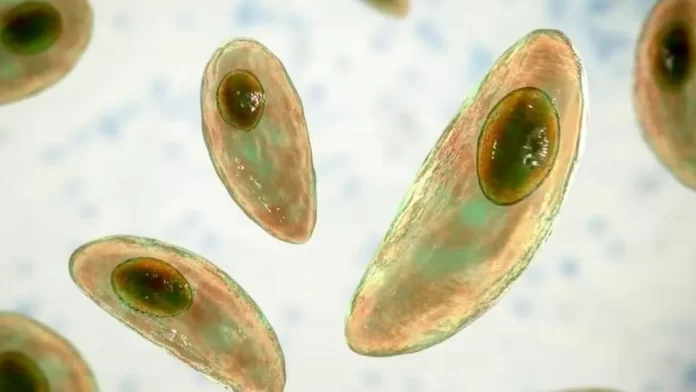Toxoplasmosis is an infectious disease caused by the parasite Toxoplasma gondii. Here’s an overview of its symptoms, causes, treatment, and prevention:
Symptoms:
- Mild Symptoms: Many people infected with toxoplasmosis may not exhibit any symptoms, especially if they have a healthy immune system.
- Flu-like Symptoms: Symptoms can resemble those of the flu, including muscle aches, fatigue, fever, and swollen lymph nodes.
- Severe Symptoms: In severe cases, especially in individuals with weakened immune systems (such as those with HIV/AIDS or undergoing chemotherapy), toxoplasmosis can lead to severe complications, including damage to the brain, eyes, and other organs.
Causes:
- Parasitic Infection: Toxoplasmosis is caused by the Toxoplasma gondii parasite.
- Transmission: The parasite can be found in cat feces, contaminated soil, water, and undercooked meat. Transmission to humans typically occurs through:
- Ingestion of contaminated food or water
- Handling cat litter or soil contaminated with cat feces
- Transmission from mother to fetus during pregnancy (congenital toxoplasmosis)
Treatment:
- Mild Cases: Mild cases often do not require treatment, as the immune system can usually control the infection.
- Severe Cases: Treatment is necessary for severe cases and those with compromised immune systems. It typically involves a combination of antibiotics such as pyrimethamine and sulfadiazine to kill the parasite. Other medications, such as corticosteroids, may be prescribed to reduce inflammation and manage symptoms.
Prevention:
- Cook Meat Thoroughly: Cooking meat to safe temperatures (usually at least 160°F or 71°C) can kill the parasite.
- Wash Hands and Cooking Surfaces: Thoroughly wash hands, utensils, and surfaces that have come into contact with raw meat.
- Avoid Raw or Undercooked Foods: Avoid consuming raw or undercooked meat, especially pork, lamb, and venison.
- Practice Good Hygiene: Wash hands thoroughly with soap and water after handling raw meat, gardening, or cleaning cat litter boxes.
- Avoid Cat Feces: Pregnant women and individuals with weakened immune systems should avoid cleaning cat litter boxes if possible. If unavoidable, wear gloves and wash hands thoroughly afterward.
- Cover Sandbox: If you have outdoor sandboxes for children, cover them to prevent cats from using them as litter boxes.
- Avoid Drinking Untreated Water: Avoid drinking untreated water from potentially contaminated sources.
It’s essential for pregnant women, individuals with weakened immune systems, and those working with soil or animals to take extra precautions to prevent toxoplasmosis infection. Regular visits to healthcare providers for prenatal care and routine check-ups are crucial for early detection and management, especially for pregnant women.

































